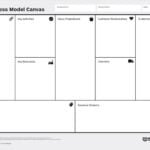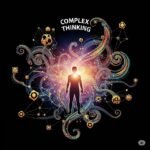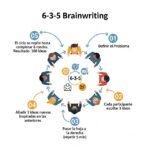
The spread of misinformation online poses a serious threat to our society, especially for young people. This is where gamification can play an important role in teaching youth to combat misinformation.
A computer game helped high school students better distinguish between reliable and deceptive news. This is demonstrated by a study conducted by researchers from Uppsala University (Sweden) and Cambridge University (United Kingdom), which has just been published in the Journal of Research on Technology in Education.
Researchers used the computer game “Bad News” to assess its impact on Swedish high school students playing individually, in pairs, or as a whole class.
What is “Bad News”?
Bad News is based on a similar idea to vaccines: psychological inoculation. Just as a vaccine weakens a virus so the body can generate antibodies and fight it, Bad News exposes players to weakened versions of strategies used in misinformation. In the game, players take on the role of a social media influencer and experiment with different techniques to manipulate public opinion. By seeing how these strategies work, players develop a better understanding of how to detect them in real life.
Instead of consuming information, Bad News players take on the role of creators of fake news, crafting sensational headlines and manipulating social media posts. Through this immersive experience, students gain firsthand exposure to common misinformation tactics and learn to recognize them in the real world.
Studies have shown that Bad News can improve players’ ability to identify and reject false information. Additionally, the game can also foster a greater appreciation for reliable news sources. If you’re interested in learning more about Bad News and the research backing it, here you can find a complete list of scientific publications (all with open access and open data).
Research: Boosting Students’ Discernment Skills
The study, conducted by researchers in Sweden, evaluated the impact of Bad News on 516 high school students. These students played the game individually, in pairs, or as a whole class. Then, researchers analyzed how the game impacted students’ ability to:
- Assess the reliability of online information: This included both manipulative content (misinformation) and credible sources.
- Explain their reasoning: The study went beyond simply measuring outcomes: it also explored why students made the decisions they did.
- Develop positive attitudes toward credible news sources: Recognizing the importance of reliable information is crucial for navigating the online world.
Promising Results
The findings are clear: Bad News is a powerful tool for boosting students’ media literacy skills. This is what the study revealed:
- Improvement in the ability to detect manipulation: Students from all gaming formats showed a significant increase in their ability to identify manipulation techniques used in social media posts.
- Prioritizing credibility: Interestingly, the study found that students with a pre-existing positive attitude towards credible news sources showed better discernment skills. Additionally, playing Bad News further reinforced this positive attitude towards credible sources.
- Engagement matters: The study suggests that playing Bad News in a whole-class setting generated greater enjoyment among students and a higher overall interest in the intervention.
Why It Works: Uncovering the Power of the Game
The study also delved into the “why” behind the positive results. Content analysis revealed that students who improved their ability to identify misinformation focused more on the manipulative strategies used in deceptive content after playing. In other words, they were learning to recognize the “tricks of the trade” used by those spreading misinformation, rather than simply relying on the content itself.
This suggests that Bad News effectively equips students with the critical thinking skills they need to become discerning consumers of online information.
“The students improved their ability to identify manipulation techniques in social media posts and to distinguish between reliable and misleading news,” comments Thomas Nygren, Professor of Education at Uppsala University.
Implications for Educators
This study offers valuable insights for educators seeking to equip their students with the tools to effectively navigate the information landscape. Serious games like Bad News present a novel and engaging way to promote media and informational literacy in the classroom.
“This is an important step in providing young people with the tools they need to navigate a world full of misinformation. We all need to get better at identifying manipulation strategies (prebunking, as it is known), as it is practically impossible to discern deepfakes, for example, and other AI-generated misinformation at a glance,” says Nygren.
Bad News is a powerful tool that can be used to:
- Develop critical thinking: Equip students with the skills necessary to critically analyze information and identify manipulation tactics.
- Promote media literacy: Foster a positive attitude towards credible news sources, encouraging students to seek out reliable information.
- Increase engagement: Utilize the power of games to create a fun and interactive learning environment.
Looking to the Future
The findings of the study pave the way for future research exploring the long-term impact of games like Bad News. By empowering students to become discerning information consumers, we can create a better-equipped future generation to combat misinformation and make informed decisions in our increasingly digital world.
Nygren warns “Some people believe that gamification can enhance learning in school. However, our results show that increased gamification in the form of competitive elements does not necessarily mean that students learn more, although it may be perceived as more fun and interesting.”
Ultimately, by harnessing the power of games and fostering critical thinking skills, educators can equip students with the tools they need to navigate the information landscape and become responsible digital citizens.
The study received funding from the Swedish Institute for Educational Research.
Contact
Thomas Nygren, Professor of Education at the Department of Education, Uppsala University, thomas.nygren@edu.uu.se, +46 73-646 86 49
Reference (open access)
Axelsson, Carl-Anton Werner, Thomas Nygren, Jon Roozenbeek, and Sander van der Linden. “Bad News in the Civics Classroom: How Serious Gameplay Fosters Teenagers’ Ability to Discern Misinformation Techniques.” Journal of Research on Technology in Education, (2024), 1–27. doi:10.1080/15391523.2024.2338451.
Editor and founder of “Innovar o Morir” (‘Innovate or Die’). Milthon holds a Master’s degree in Science and Innovation Management from the Polytechnic University of Valencia, with postgraduate diplomas in Business Innovation (UPV) and Market-Oriented Innovation Management (UPCH-Universitat Leipzig). He has practical experience in innovation management, having led the Fisheries Innovation Unit of the National Program for Innovation in Fisheries and Aquaculture (PNIPA) and worked as a consultant on open innovation diagnostics and technology watch. He firmly believes in the power of innovation and creativity as drivers of change and development.





